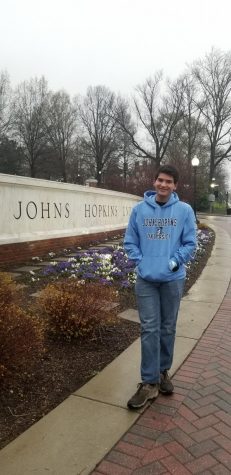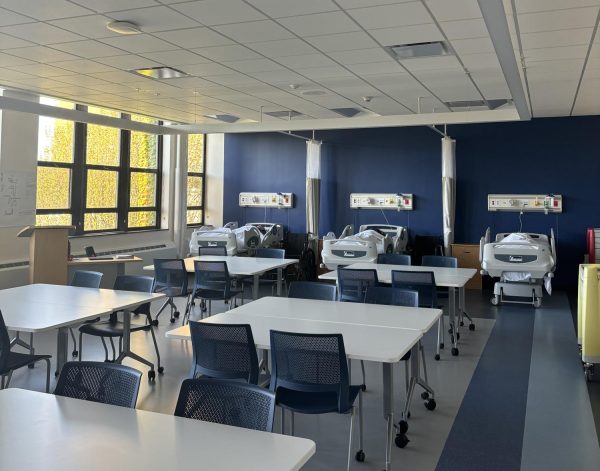Rolling the dice: thoughts on the college admissions scandal
May 23, 2019
In the aftermath of a large scandal earlier this year, there has been much thought about the system of college admissions that has long been implemented by four-year schools across the United States.
The scandal, which has been referred to as “Operation Varsity Blues,” was led by William Singer, founder of Edge College and Career Network, and placed the children of many Hollywood socialites into elite schools. This was done through the use of bribery, test modification and falsification of athletic records with at least 50 participants indicated.
“I was not surprised that this happened,” Michelle Rogers, Kellogg School Director of Chicago Partnerships and former graduate admissions officer for the Medill School, said. “I’ve had people come up to me and try to pay me personally to get their kid into our school. There was a father during an interview who told me and I quote ‘There is no gift too much if my child goes here.’”
While Rogers believes that this use of wealth and influence is commonplace, the sheer size and methods used by those involved did serve to surprise her and others working in the college admissions arena.
“For me it was sort of a surprise that it happened, but at the same time not surprised that it happens,” College and Career Coordinator Beth Arey said. “Because of the selectivity of so many colleges today, people will do a lot of things to help their students get in, whether it’s paying for the best test prep tutor, or essay writer or private counselor. It shouldn’t surprise me that people were willing to pay exorbitant amounts of money to help their students get in.”
As Arey said, due to the increasing selectivity of many four-year institutions, the accessibility of the services that they provide are becoming more and more limited to the wealthy, something shown both by the Varsity Blues scandal and by the common practice of monetary donations prior to the admission of a wealthy student.
“I’ve been on the college side to know how much wooing goes on when they hear the children of a wealthy family is coming to the school. They start contacting them as first-year students, make sure that the president is available to meet somebody, etc. The lengths that colleges have already gone through to try to make people feel special, to cozy up to the family and get that money in the end, I can’t see that shifting,” Arey said.
While both Rogers and Arey believe that the specifics of the admissions process for specialized students, such as athletes, may change, they agree that for the large part, the system will remain unchanged.
“You typically don’t change everything when you have a few bad apples, certainly a bit more scrutiny or oversight, but I don’t see any major changes coming because you don’t expect them to,” Rogers said.
The scandal is indicative of the selectivity of many colleges across the nation, something that has only increased over the past decade with a surge of students applying to schools, the increased information surrounding school environments and programs and the rampant use of social media.
“Social media plays a huge role in what goes on in a lot of what goes on in our environment today because people see what others are doing and see that there is some of that exposure can be harmful in some cases…. We’re knowing things we might not have known about,” Rogers said.
In addition to the growing number of applications, and thus increased selectivity at many schools, the story of money influencing the results of college success stretching far deeper as many public community colleges under pressure of poor funding, are seeing more and more working-class students failing to graduate within six years.
Despite this failure of the government to supply adequate funding for community colleges, there are things that can be done to help students increase their odds of getting into ever more selective schools.
“What you write and how you write it can be very important to some institutions… at those schools where the essays matter you have an opportunity here to let people know who you are,” Rogers said. “People work hard to try to be what a school might be trying to look for rather than being who they are.”
As Arey said, having resources that money can provide, like access to test prep and essay writers, might influence admittance as well. The College and Career Center in the HUB does provide essay assistance and individualized counseling, something Arey says is often underused.
Regardless of the resources available, however, college admissions have been and remain largely up to luck, with countless uncontrollable factors, the largest being who else applied, influencing the choices made by admissions offices.
“One year [the admissions staff] made a shirt that had a pair of dice on them because internally a lot of what we’re saying is that where you go, has a lot to do with chance,” Rogers said. “There are so many factors that you can’t control, you can’t control other people applying, you can’t control where they’re admitted.”
Ultimately, college admissions remain largely up to chance, even more so following an increase in scrutiny following the recent scandal, and while there may be choices that might improve your odds, nothing can beat the simple roll of the dice.


















